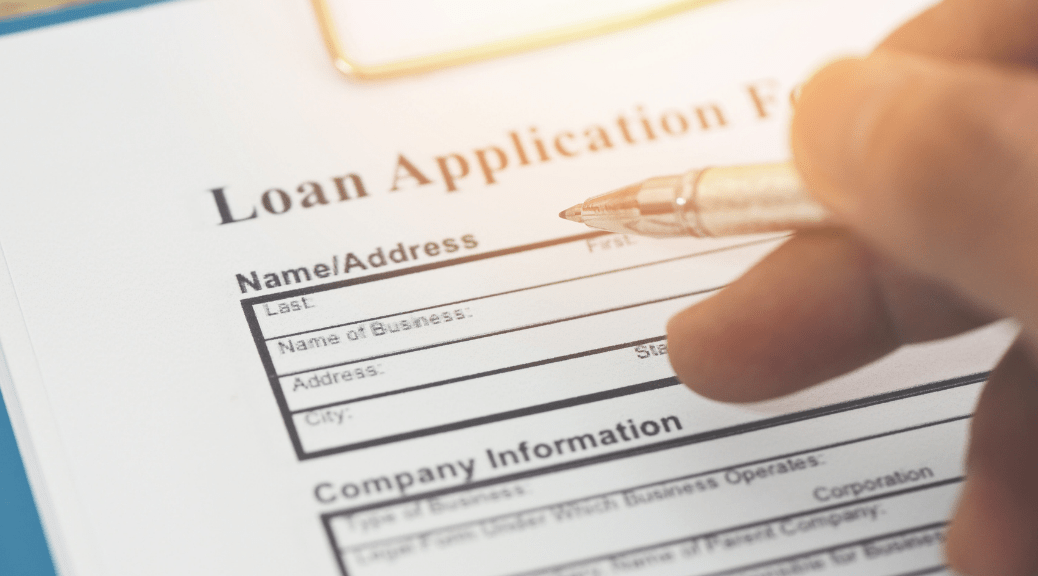In today's technology-driven landscape where digitalization is ubiquitous, companies confront an escalating threat landscape in the form of...

Home Loan Protection Insurance
Home Loan Protection Insurance
Your loan is insured in the same way that you acquire life insurance, accident insurance, etc. In fact, when you take out a home loan to purchase a property, you are responsible for paying back a sizable sum of money. There are numerous more obligations in addition to the loan. In this case, the family is responsible for repaying the loan in the event of an unfortunate event. The property may even be lost if the family is incapable. However, if house loan insurance is also purchased, it will serve as a true support system for you in times of need. The family does not have to worry about paying the outstanding EMI in case of any untoward incident and the property remains safe.
Subas Tiwari
Why is this necessary?
This is a new occurrence in banks and financial institutions. Many home loans became unrecoverable due to the death of the loan borrower, and the bank/FI turned them into bad debts, drawing the wrath of the RBI and bank management. In light of these home loans’ lengthier repayment gestation periods, IRDAI then encouraged insurance companies to develop a loan protection insurance cover. Even however, the loan borrower has the choice not to purchase this insurance because they may already have life insurance plans that they could assign to the lender. These days, several banks provide this type of loan protection insurance not only for home loans but also for personal loans, auto loans, and other types of loans.
Home loan insurance provider in India
Almost all banks in India have insurance subsidiaries that sell home loan protection plans. For example, State Bank of India (SBI) has SBI Life; ICICI Bank has ICICI Lombard; HDFC has HDFC Life and HDFC Ergo. However, there are banks that do not have any insurance subsidiary agreements with life insurance providers and general insurance companies to sell home loan and home loan insurance packages.
How does this benefit the borrower?
- If something unfortunate occurs to the borrower in the future, he need not feel anxious.
- He is aware that his family members, who may not be gainfully employed or who may not be in a position to return such a sizable sum of money, won’t be harassed by the loan protection policy’s matured amount after his passing (running into lakhs).
What are the benefits?
- The loan borrowed from the bank is protected financially, as the burden will not fall on the family in case of sudden demise of the borrower.
- The insurance cover to match the loan outstanding can be one option so that the outstanding & the protection insurance sum assured also gets reduced proportionately.
- If the insurance sum assured is more than the loan amount, then the legal heirs will get the benefit of the excess sum assured after extinguishing the home loan liability.
- The premium paid will be eligible for 80C income tax benefits as per latest tax laws.
- The benefits available under the insurance cover would be Death Benefit & Permanent Total Disability Benefit which will be 100% of the sum assured.
Who pays the Premium?
The insured/borrower pays either directly to the insurance company or the premium amount is debited to the loan account of the borrower by the bank.
The Tenure/ Premium amount & Sum Assured of the policy
These will depend upon the home loan sanction terms such as borrower’s age, loan amount, period of repayment, etc.
Can the policy continue even after the death of the borrower?
No. Since it is a life policy, the policy terminates with the death/permanent total disability of the borrower.
Is there any clause limiting the policy cover to match outstanding balance in the loan account?
Yes. Flexible cover is available where the amount of burden (loan outstanding) reduces the loan protection sum assured proportionately so that the borrower saves on the premium payable for future coverage. In fixed cover option, the premium is constant (as in the case of a Single Premium paid) though the loan amount gets reduced on regular repayments.
How does this benefit the banks/NBFCs?
- By the insured taking the loan protection cover, the bank is assured of full repayment in the event of any contingency/ happening of an unfortunate event in the life of the insured.
- The financial institution/lender enters its name either as the nominee of the insured so as to be eligible for receiving the amount of maturity of the insurance policy or gets the insurance policy assigned in its favour for obtaining the insurance amount on maturity of the policy (group policies cannot be assigned).
- Since the premium is regularly paid by the borrower (as his stake), there is a slender chance of the policy getting lapsed midway; this way the loan protection is continued.
Is this cover compulsory now?
Not yet. But going by the success of these policies being sold, there is every chance of loan protection policies to be a part of every home loan/loan sanction.
Are there similar insurance protection policies for other types of loans also?
Yes. Some of the insurance companies have widened the scope of such policies to cover all types of loans (car loans, personal loans, etc.) so as to help the bank minimize the chances of such loans going bad.
Do the nationalized Life Insurance Companies & LIC offer such policies?
No. We have browsed all the available sites to obtain some information but no such policies are offered by these institutions so far.
Is it beneficial to go in for Group Policies or Individual Policies to take loan protection insurance cover?
- Group policies mandate a minimum of members to be eligible for taking a policy.
- Group policy premiums are cheaper as compared to individual policies.
- It is at the banks’ end that the home loan borrower would come to know if the banks’ have a group insurance tie-up with an insurance company.
Something to know about-Home Credit Assure Package Insurance
This is the latest policy to hit the market, albeit a closed one, as it is a custom-made policy packaged for exclusive home loan clientele.
Let us try to understand what it is
- It is a single premium policy
- An insurance cover is taken through a loan to repay the premium & tied to your loan sanction
- The policy would be assigned in favour of the bank to ensure full recovery of the loan
- It is only open to those who opt for a home loan
- It is open for individual home loan buyers between the ages of 20 to 55 years only
- It is a policy taken from 1 year (min) to 5 years (max)
- The policy then can be renewed for a further period up to a further 5 years
- The Insurance cover is on the loan amount being availed
- You cannot buy a policy directly, as the insurance product is linked to your home loan product
- A loan would be arranged on the same rate of interest (as for home loan) to meet the cost of premium which can be paid by EMI
- The sum assured & the loan amount would match
- There are two options- fixed & flexi wherein under the fixed option the sum assured will be for a fixed amount irrespective of the fact that the loan amount would get reduced gradually while the EMI will remain the same throughout the tenure of the policy
- In flexi option, you can opt for this option where the sum assured on the policy will change/match the outstanding loan at the time of renewal of the policy
- Which means after the end of 5thyear & at the time of renewal of the policy, the renewal of the policy will be the outstanding loan amount resulting in reduced premium by way of EMI
- The policy offered has benefits of-
- Critical illness benefit to cover the first diagnosis of 9 critical illnesses (Section 80 D is available for this option)
- Personal accident benefit covering accidental death of the beneficiary; Permanent Total Disability & Dependent Chid Education
- Loss of job (up to 3 EMIs)
- Fire insurance benefit (up to Sum Assured)
- Burglary, Housebreaking & Theft
Let us see an example illustration to understand this better-
Loan details
- Home Loan amount sanctioned to the individual – Rs.40,00,000
- Rate of interest- 8.70% p. a floating
- Tenure of the loan- 20 years (240 months)
- EMI of the loan- Rs.33,572
- Age of the borrower- 42 years
- Pre-Existing Disease- No
- Property- Residential
- Occupation- salaried
Insurance details
- Sum Assured – Rs.43,51,008
- Single Premium (EMI)-Rs.3,51,008
- Insurance Loan interest- 8.70% p. a
It is claimed that the success rate of buying up this insurance loan policy from home loan borrowers is about 90% and the claim settlement ratio is over 99% according to informed sources.




